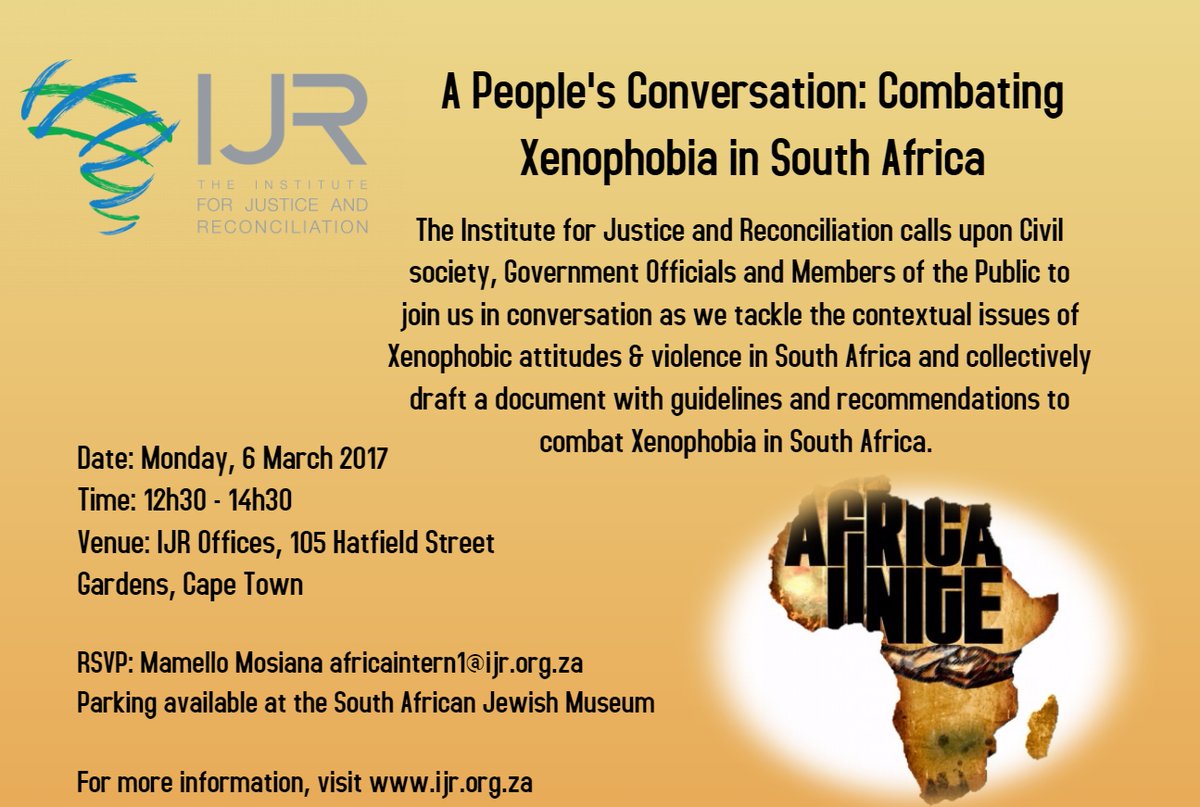
Between 2008 and 2016, South Africa witnessed unprecedented levels of violence against foreign nationals which resulted in the loss of lives, the destruction of property and an overall collapse of trust within communities across the country.
In South Africa, we experience a very specific kind of xenophobia, targeted at African foreign nationals, which can be attributed to South Africa’s long history of apartheid and racism. Afrophobia is as a result of centuries of colonial oppression, the legacy of imposed borders and internalised racism. It is also as a result of competition over resources and employment opportunities which results in misplaced anger towards foreign nationals, instead of the racially-based economic system that brought about these disparities. Afrophobia undermines the ideology of Pan-Africanism, which speaks to a united Africa and an Africa without borders, it is this spirit of Pan-Africanism that animated and mobilised the decolonisation process in the mid-20th century, which contributed to South Africa’s liberation from Apartheid. There is also a very particular kind of xenophobia experienced by Muslim foreign nationals which contributes to compounded experiences of violence and fuels growing Islamophobic sentiments globally.
It is in the spirit of intersectionality, that we recognise the members of society that become particularly vulnerable in times of violence, including women, children and members of the LGBTQIA+ community who experience compounded and intersecting violations. Sexual assault is often used as a tool of violence which is specifically targeted at vulnerable members of society and it is in times of increased conflict that sexual violence is used as a weapon of domination.
It is in light of growing xenophobic attitudes and violence that IJR is hosting a public conversation which aims at highlighting experiences of Xenophobia, tackling the history of xenophobic attitudes amongst South Africans and problematising the structures that perpetuate xenophobic violence and fail to protect foreign nationals from harm.
We call upon civil society, members of the public, government officials and law enforcement to join us in conversation and assist in creating a guiding document, containing workable recommendations, to be delivered to the Department of Home Affairs, Law Enforcement and the broader public.
Date: 6 March 2017
Time: 12h30 – 14h30
Venue: IJR Offices, 105 Hatfield Street Gardens, Cape Town
Contact person(s):
Mamello Mosiana [email protected]
Jodi Williams [email protected]
Ashanti Kunene [email protected]

Comments
Keep comments free of racism, sexism, homophobia and abusive language. People's Assembly reserves the right to delete and edit comments
(For newest comments first please choose 'Newest' from the 'Sort by' dropdown below.)